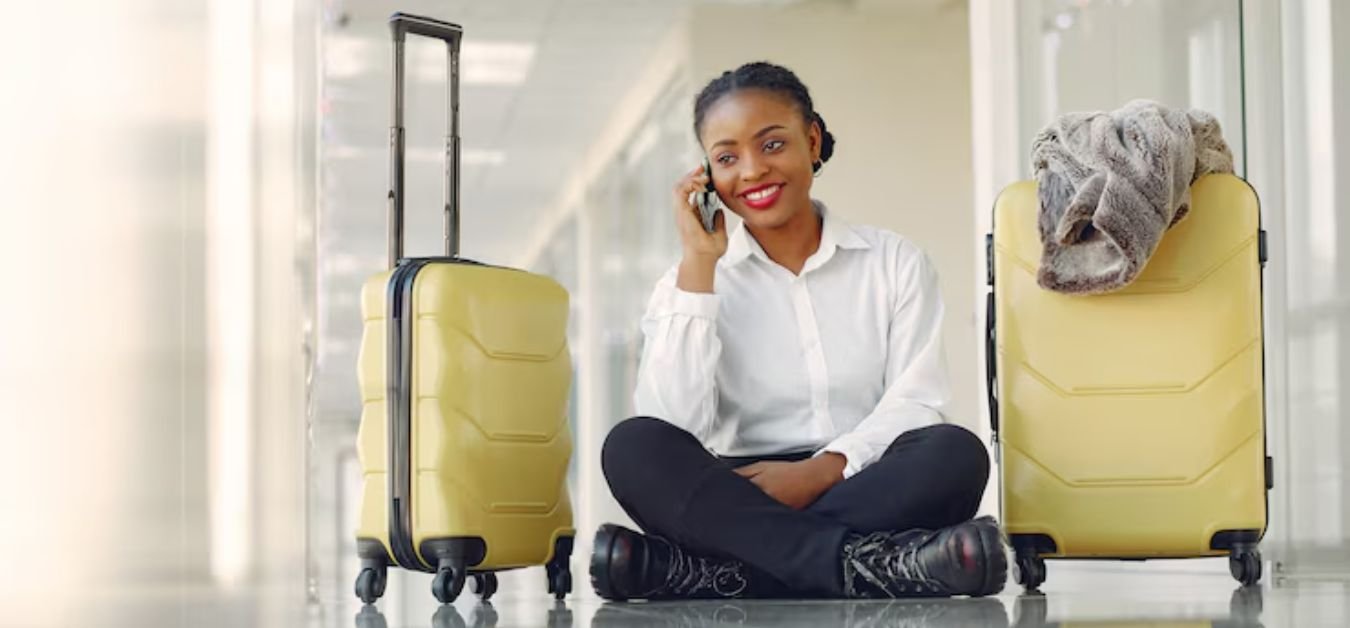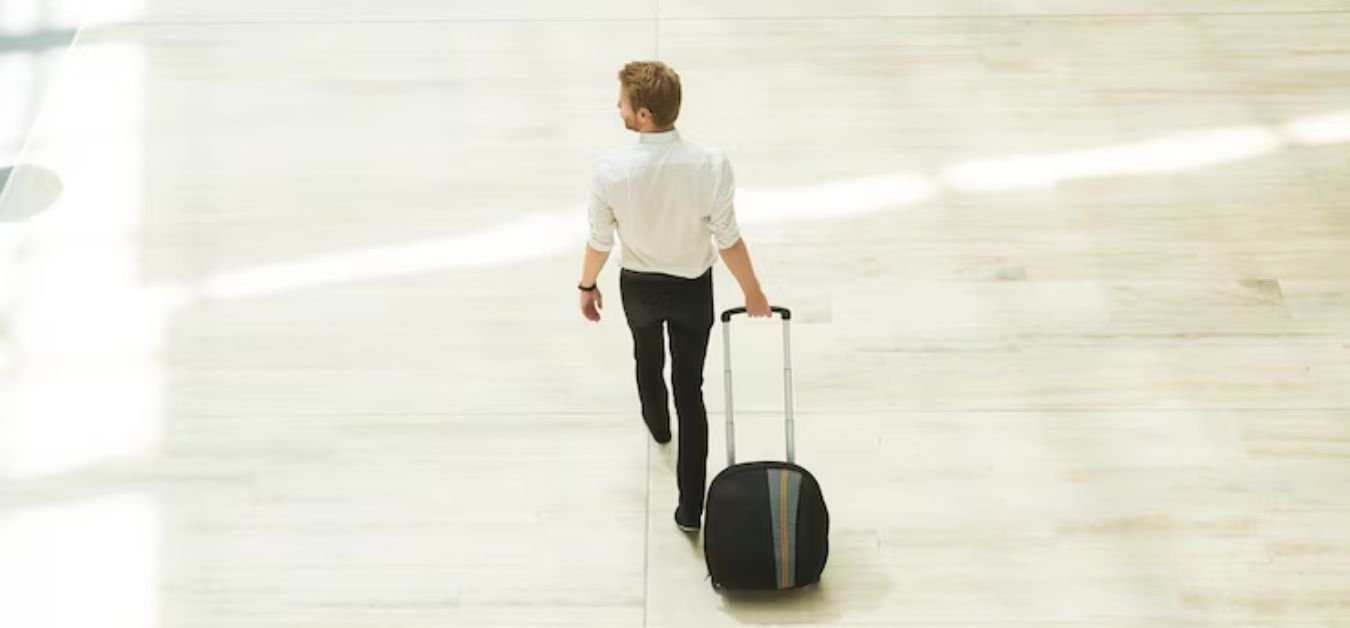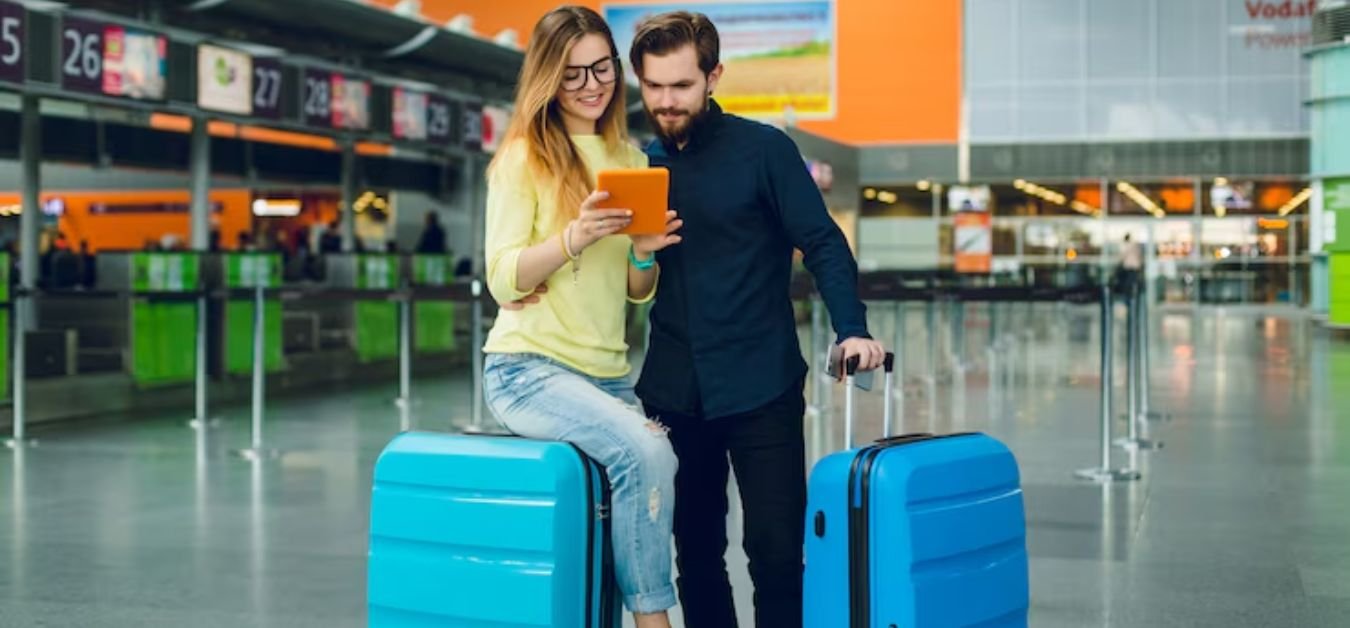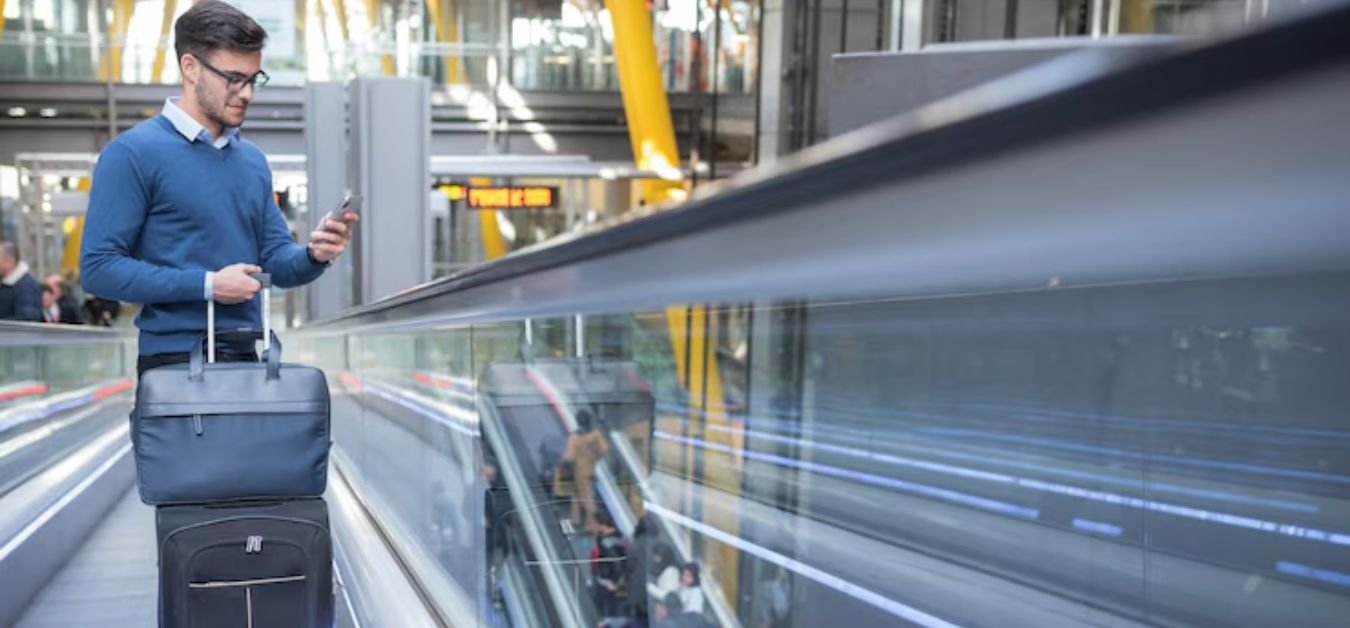Understanding the Eswatini Air baggage policy is essential for passengers flying with Royal Eswatini Airways (RENAC), especially given the specific rules set for checked, carry-on, and special items. As a short-haul, all-economy airline, Eswatini Air provides a straightforward and transparent baggage allowance structure aimed at ensuring safety, operational efficiency, and passenger comfort. This guide covers all necessary baggage rules, including weight limits, excess baggage fees, special equipment handling, and liability policies as per official airline standards.
Eswatini Air’s General Baggage Allowance
Eswatini Air classifies baggage as all personal property necessary for travel. The airline grants a free baggage allowance, which includes both carry-on and checked luggage. Baggage size and weight must meet airline standards, and passengers are responsible for complying with these guidelines to avoid delays or additional fees.
Carry-On Baggage
As per the Eswatini Air baggage policy, each passenger is permitted to carry one piece of hand luggage without incurring additional charges. This item must fit in the overhead bin or under the seat and must not exceed 8kg in weight. The allowable dimensions are 56 + 36+ 23 cm.
Passengers may also bring one additional personal item that may include either a handbag or a laptop, not both, though.
Essential items like umbrellas, walking sticks, small cameras, binoculars, infant cots, crutches, and other assistive devices are allowed at no extra cost.
Infants without a dedicated seat are entitled to carry up to 5kg of hand luggage, which may include baby food, bedding, and diapers. Children and infants paying between 50% to 75% of an adult fare qualify for the same carry-on allowance as adults.
Regarding liquids and powders, items like gels, creams, and aerosols are allowed in reasonable amounts if needed for the journey. The combined quantity must not exceed 2 liters or 2 kilograms, with each item limited to 100 ml (liquids) or 350g (solids). These should be stored in a resealable plastic bag with total dimensions not exceeding 80cm.
Checked Baggage
According to the Eswatini Air baggage policy, each passenger is entitled to check in one piece of baggage free of charge, provided it meets the airline’s size and weight requirements. The maximum permitted weight for checked luggage is 20kg, and the total linear dimensions (length + width + height) must not exceed 158cm.
Passengers must ensure that their luggage is durable, securely closed, and tagged with their identification details to avoid loss or mishandling. Any bag that exceeds the weight or dimension limits will be subject to excess baggage charges. It’s recommended to arrive early for check-in to allow time for proper baggage inspection and handling.
In certain situations—such as aircraft weight limitations, full flights, or adverse weather conditions—Eswatini Air may need to carry some baggage on the next available flight, though every effort is made to minimize such delays and keep passengers informed.
Excess Baggage Policy
Passengers who exceed the standard checked baggage allowance are subject to additional charges:
- SZL 25 per kilogram over the 20kg limit.
- SZL 320 flat fee for each additional piece beyond the permitted one.
- Oversized items (exceeding 158cm in total dimension) also incur excess fees even if under the 20kg weight limit.
Carry-on baggage that exceeds the weight or size limit must be checked in and treated as excess baggage.
In cases where a blocked seat is requested (such as for large personal items), Eswatini Air charges 75% of the adult one-way fare for the route flown.
Eswatini Air’s Rules for Sports Equipment
Eswatini Air acknowledges that many travelers carry sports gear and accommodates such equipment within the checked baggage policy, provided certain requirements are met. All equipment must be packed properly, and any weight or size beyond the limits will result in extra charges.
Standard Conditions:
- Sports equipment is counted as part of the checked baggage allowance.
- Equipment must be packed as a single piece and must not exceed 15kg in weight.
- If the total luggage (including sports gear) exceeds the 20kg checked allowance, standard excess baggage fees apply.
- Any equipment exceeding 190cm x 75cm x 65cm must be shipped as cargo.
Accepted Types of Equipment:
Eswatini Air permits a variety of sports equipment, such as:
- Golf clubs
- Non-motorized bicycles
- Fishing gear
- Hiking gear
- Cricket, soccer, volleyball, and netball kits
- Scuba diving and horse-riding equipment
- Snow skis, water skis, surfboards, and skateboards (up to 2 meters in length)
Important Notes:
- Certain equipment may be subject to aircraft-type restrictions depending on flight configuration and cargo space.
- All oversized or specialty equipment must be pre-booked as a Special Service Request (SSR) during reservation or at least 72 hours before departure.
- Items not pre-approved or improperly packed may be refused at check-in or rerouted as cargo at the passenger’s expense.
Can You Carry Musical Instruments On Eswatini Air
Eswatini Air allows the carriage of musical instruments such as guitars, flutes, harps, and other similar items. These must adhere to specific transport guidelines to ensure their safety and compliance with the airline’s baggage policy.
General Guidelines:
- Instruments are accepted as part of checked baggage, provided they are packed in a hard-shell case for protection.
- All checked instruments must be tagged as “Fragile” at the check-in counter.
- Passengers must sign a Limited Release tag at least three business days before departure, acknowledging the fragile nature of the item.
- If the instrument exceeds the standard size or weight for checked baggage, an excess baggage fee of SZL 320 will apply.
Cabin Transport Option:
- Small instruments that do not exceed 115cm in combined dimensions and weigh less than 8kg may be brought onboard as carry-on baggage, subject to space availability.
- These will count as the single permitted cabin baggage item under the Eswatini Air carry-on policy.
Booking an Extra Seat:
- Passengers may also book a separate seat for larger or delicate instruments if they prefer not to check them in.
- This must be arranged in advance and is offered at a discounted fare for the additional seat.
Additional Notes:
- Informing the airline in advance during booking is strongly recommended to ensure appropriate handling.
- Oversized or extremely delicate instruments may be subject to aircraft-type restrictions and will be handled case-by-case.
By following these steps, travelers can ensure their instruments are transported safely and in line with Eswatini Air’s policies.
Are Firearms and Ammunition Allowed On An Eswatini Air Flight?
Firearms and ammunition are strictly regulated under the Eswatini Air baggage policy to align with international safety standards outlined in the Montreal Convention. These items are not accepted as part of regular cabin or checked luggage unless the following specific conditions are met:
- Firearms must be declared in advance to airport security for proper verification and handling.
- The total weight of ammunition must not exceed 15kg and must be securely packed.
- Only hunting rifles, shotguns, sporting firearms, and toy guns are accepted. Small arms, pistols, revolvers, and handguns are strictly prohibited.
- All firearms must be unloaded, the safety catch must be on, and they must be properly packed with valid legal documentation required by both the departure and destination countries.
- A handling fee of SZL 400 for loading and SZL 400 for offloading per gun or rifle bag applies. This fee must be paid directly to the airport handling agent.
All rifles and shotguns must be approved three days prior to travel, and the airline reserves the right to decline transport of any unauthorized or improperly declared weapons. RENAC also exercises full discretion on the acceptance of knives, antique firearms, and similar equipment.
The airline will not be held liable for the confiscation, removal, or retention of such items by security authorities or other governmental bodies.
Eswatini Air’s Baggage Liability and Safety
Eswatini Air accepts responsibility for baggage handling as per the Montreal Convention, which outlines compensation policies for the following situations:
- Lost baggage during transit or handling
- Delayed delivery of checked luggage
- Pilferage, theft, or physical damage to baggage contents
Passengers are urged to take precautions to protect their belongings:
- Use secure, zipped, and airline-approved luggage that meets the standard size and weight limits.
- Keep valuable and essential items, such as electronics and personal documents, in carry-on baggage.
- Ensure all luggage is tagged properly and complies with RENAC’s regulations.
Due to aircraft size limitations, checked baggage space may be limited on full flights or during certain weather conditions. In such events, RENAC may transport some baggage on the next available flight, prioritizing operational safety and passenger comfort.
Traveling with Children and Unaccompanied Minors
Eswatini Air warmly welcomes children and infants onboard, offering a travel experience focused on both comfort and safety. The airline provides tailored services for families, ensuring smooth procedures for traveling with young passengers and unaccompanied minors (UMNRs).
Fare Structure for Infants and Children
- Infants (0 to 2 years): Infants traveling without a dedicated seat are charged 10% of the accompanying adult’s fare. This fare structure offers an economical way for families to travel with very young children.
- Children (2 years 1 day to 11 years): Children in this age range are charged 67% of the adult fare and are entitled to the same baggage allowance as adult passengers.
Unaccompanied Minors (UMNR)
Eswatini Air permits unaccompanied minors between the ages of 5 and 12 years to travel alone, provided all conditions are met. The fare for unaccompanied minors includes:
- 100% of the adult fare, plus
- A fixed service charge of SZL 750.00.
Parents or guardians must complete an Unaccompanied Minor Form and ensure all customs and immigration documentation is in order prior to departure. During check-in, they are required to present the child’s passport and travel documents. Eswatini Air’s dedicated staff will then escort the child through passport control, oversee security procedures, and accompany them to their seat, providing full support throughout the journey.
For travelers aged 12 years and above, the airline offers an optional “Meet and Assist” service upon request from parents. This service mirrors UMNR support, offering added peace of mind for families with older children flying alone.
Baby Cots and Prams
Passengers traveling with infants are allowed to bring baby cots or prams onboard. However, to be kept in the cabin, these items must not exceed 8kg. If they do, they will be transferred to the aircraft’s cargo hold. Should the combined weight of the pram or cot exceed 20kg, excess baggage charges will apply following Eswatini Air’s official baggage policy.
Also Read: Flydubai Airlines Baggage Policy
Eswatini Air’s Lost or Delayed Baggage Assistance
If your baggage goes missing during your journey with Eswatini Air, immediate action is recommended. Passengers should report any lost baggage directly to the airline’s Customer Service agents at the airport’s Lost and Found desk. If the loss is identified while still onboard, you are advised to inform the cabin crew immediately for timely assistance.
To facilitate the tracking process, passengers are strongly advised to retain their baggage tags until they have safely received their checked luggage at their final destination. These tags serve as proof of checked baggage and are essential for locating lost or delayed items.
In cases of lost, delayed, damaged, or pilfered baggage, Eswatini Air will assume responsibility in accordance with the Montreal Convention, an international agreement that governs airline liability for passenger luggage. This ensures fair compensation and proper handling of such incidents under globally accepted standards.
Conclusion
The Eswatini Air baggage policy is designed to maintain a balance between convenience, affordability, and operational safety. By providing clear guidelines for carry-on, checked, special items, and excess baggage, the airline ensures a smooth travel experience for all passengers. Whether you are traveling with infants, carrying sports gear, musical instruments, or specialized items like firearms, understanding and complying with RENAC’s policy helps avoid last-minute hassles. Always check your baggage dimensions and weight, pre-book special requests in advance, and retain your baggage tags throughout the journey to ensure accountability and support in case of any travel disruptions.
FAQs:
Each passenger may bring one carry-on bag up to 7 kg, with combined dimensions no larger than 115 cm (or 56 × 36 × 23 cm). Additionally, a small personal item (like a laptop, handbag, or jacket bag) is included if it fits prescribed dimensions.
Yes—if your carry-on exceeds the 7 kg limit, you may upgrade to 10 kg at the airport for a fee, or check it in as standard luggage.
The free checked baggage allowance is available in different classes with some limitations:
Business and Premium Economy passengers get one piece up to 32 kg
Economy and promotional fares allow one piece up to 23 kg
All checked bags must comply with the 158 cm total linear dimension rule
Children aged 2 and above receive the same checked baggage allowance as adults, while infants (under 2) are not entitled to checked baggage, though they may bring a collapsible stroller free of charge.
Exceeding 23 kg or 158 cm, or 32 kg for applicable classes, will trigger an oversize fee: USD 80 domestically and USD 100 internationally.
Yes, you can purchase additional bags (up to 10 pieces), subject to these fees at the airport purchase:
23 kg bag: USD 69–100
32 kg bag: USD 96–130
(Fees vary by route and are detailed in their policy)
Yes—with restrictions: containers must be no larger than 100 ml, and all liquids must fit into a single resealable plastic bag. Larger containers should go in checked baggage.
Sharp objects (knives, swords, scissors over 6 cm), bludgeons, and other items considered weapons or dangerous are strictly forbidden in the cabin.
Any checked bag exceeding 119 cm on a single dimension is classified as oversized and must be pre-arranged. Airport fees apply, and transport depends on aircraft capacity.
Yes:
Business class: 2 bags x 32 kg each
Premium Economy: 1 bag x 32 kg
Economy/Promotion/Budget: 1 bag x 23 kg
All bags must respect the 158 cm linear size limit




